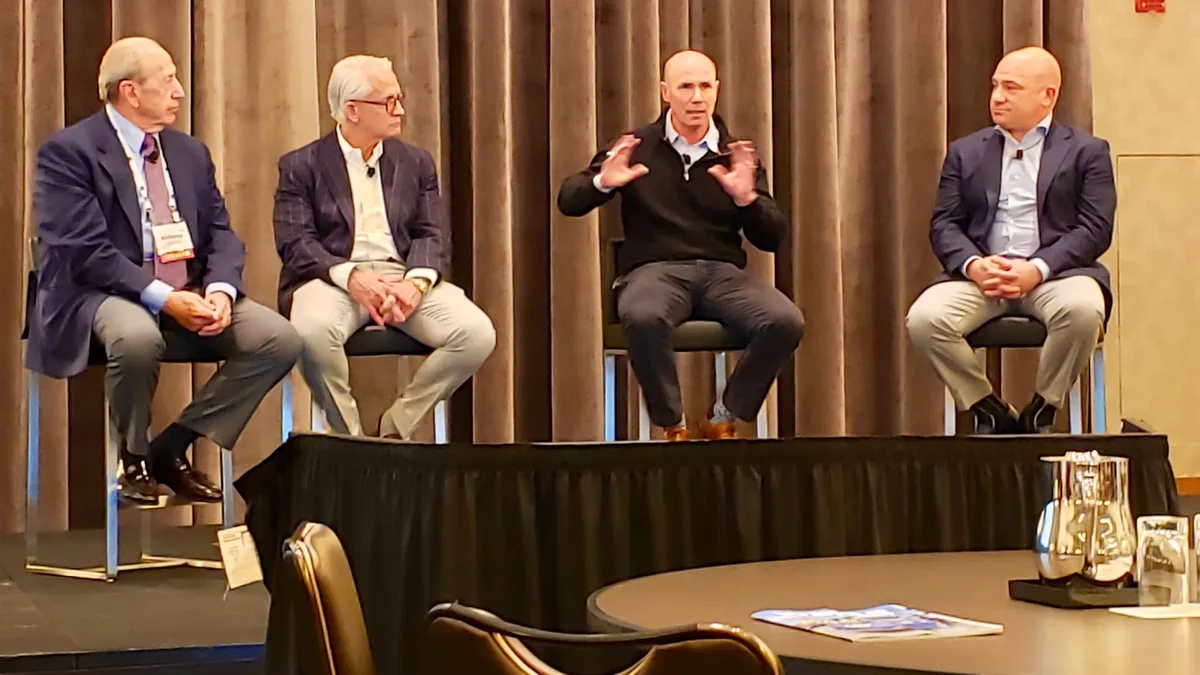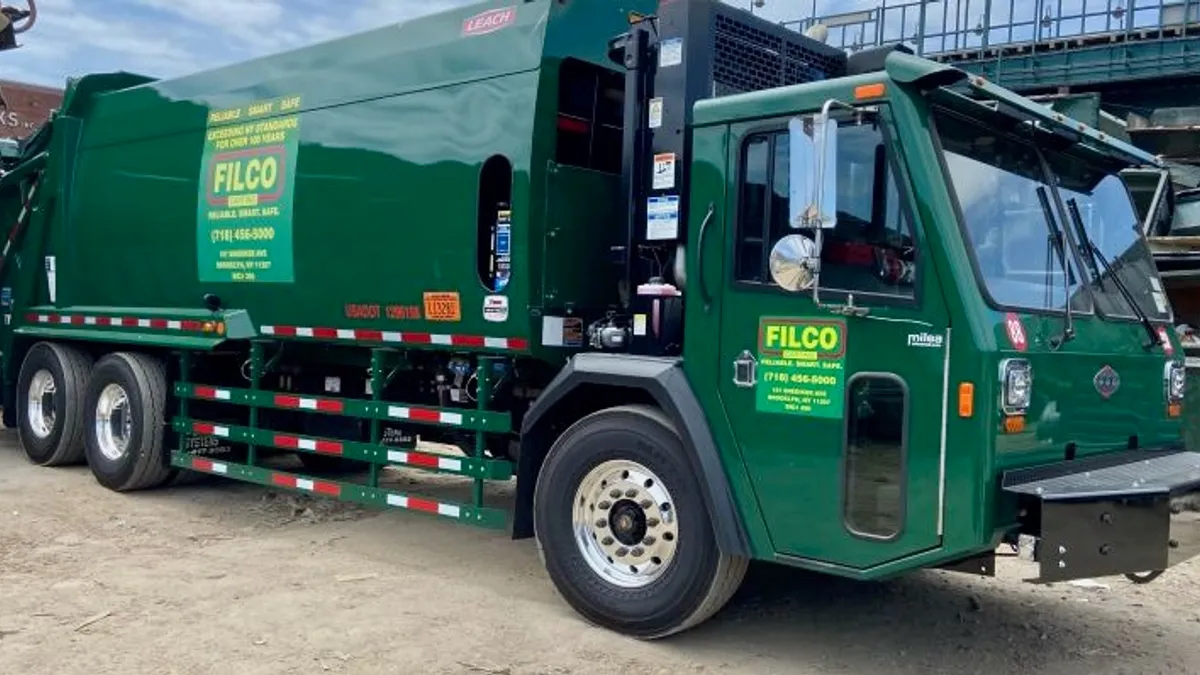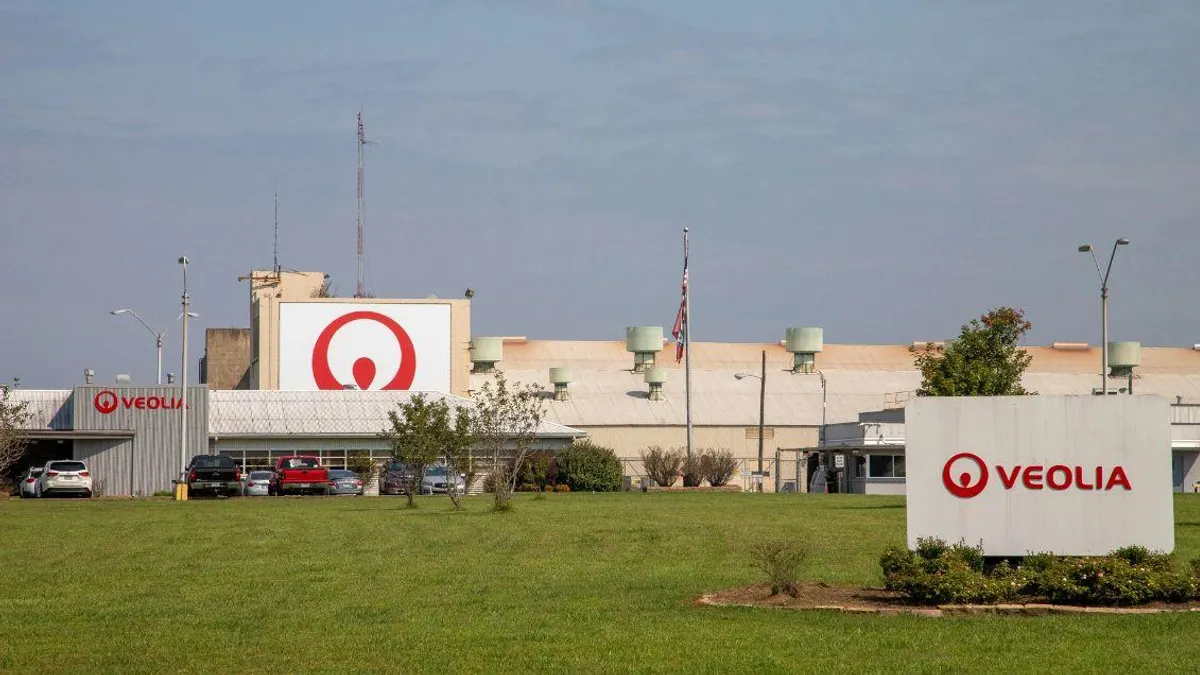Mergers and acquisitions have long been a feature of the waste industry's evolution, but successfully completing modern deals has become far more complex than it used to be, according to speakers at last week's Corporate Growth Conference in Chicago.
“You’ve got to have a process,” said Anthony Lomangino, former owner and CEO of Florida-based Southern Waste Systems, who spoke about selling multiple businesses to Waste Management. “It’s not like the old days: You shake hands and you’ve got a deal. It doesn’t work that way anymore.”
So far, 2021 has seen a period of heightened activity by major players looking to grow their operations through acquiring competitors that may be seeking an exit amid pandemic pressures or pending tax changes.
Panelists at three Nov. 4 conference sessions — focused on the benefits of private equity partnerships, maximizing value creation through financial management and lessons from selling a waste business — offered guidance for navigating the current M&A landscape.
A common theme was the importance of doing thorough research and entering a business transaction with the right partners. That extra due diligence may be overwhelming for owner-operators who are trying to run a waste business, so experts recommend seeking professional help to manage deals and finances.
"I would definitely, definitely advise anyone who is selling to get the help of an investment banker. That’s a must," Lomangino said.
Danny Ardellini, founder and CEO of Canada-based Environmental 360 Solutions, said he thought he could do everything during his first company sale to GFL Environmental, but after the complexity of that deal, "I'm lucky to have my clothes on."
"Today I’m on the other end of the table buying companies ... I encourage owner-operators to go get professional help," Ardellini said. "You don’t want them distracted from day-to-day business while they’re getting an acquisition checklist of 80 to 100 things that they have to dig up ... It's easier for both sides."
Sellers also must ensure they partner with the right financial institutions, panelists said. Private equity firms are a common feature in the industry now, but they may differ in terms of resources, culture, how they treat people and their ability to close a deal. Although some speakers said financial institutions only need to be versed in business transactions and not specific industries, others say entrepreneurs realize more benefits by choosing a private equity firm that is familiar with the industry and its intricacies.
For industry-specific private equity firms, "the network that you have, by virtue of investing in an industry 15, 20-plus years, has a higher likelihood of bringing [a favorable deal] to bear," said Michael Castellarin, managing director at private equity firm Clairvest Group. "That’s another benefit when you’re evaluating private equity firms ... What is their investment history, and what is their network like in my industry?"
Private equity firms were less prevalent 25 years ago, but as that sector has matured so has its involvement in the waste industry. Lomangino said he was "too old school" to employ that method with his first sale but did it the second time.
"If you need capital and can't get it on your own … I wouldn’t hesitate entertaining a partnership with a private equity firm," Lomangino said. "I've seen 'less competitive' competitors partner up with a private equity firm and accomplish amazing things."
Private equity support helps "especially in today’s market where the cost of the equipment, the [capital expenditures] is so expensive," Ardellini said. "It’s very difficult. You need that private equity sponsor."
Whether to take on debt for capital expenditures like equipment is an ongoing struggle for waste and recycling business owners. One said it's important to weigh all market conditions, determine if the asset is a fad or has long-term benefits and try to add leverage only in areas where returns will compound in a designated time frame.
“If it’s not something that I think I can make my money back in one or two years, if I have to have leverage in order to make the return work, it’s probably something I need to think long and hard about borrowing money for," said Rich Walton, president of Pennsylvania-based Noble Environmental.
That strategy applies to acquisitions, too, panelists said.
"Acquisition is a [capital expenditure]," said William Gay, CEO at Alabama-based Arrowhead Environmental Partners. "If you have to put on an extravagant amount of debt, you’re probably overpaying for that asset. The acquisition — you have to be able to afford it in the capital structure and it also ... has to start producing cash flows quickly."
That being said, certain assets — like landfills, or in-demand equipment facing supply chain delays — don't often become available, and jumping on the right opportunities could pay off. Owners might need to "stretch a little bit to get it and you have to work a little bit harder to figure it out," but it's doable "if you’re entrepreneurial enough and resourceful enough," Walton said. "That is very unique in this market, in the waste business, because they’re not making more landfills ... and it’s hard to get a hold of."
The current global supply chain problems are adding a layer of difficulty when calculating whether and when to make investments. Equipment from China, for example, is facing monthslong backlogs and delays, leaving owners uncertain when they will receive goods and start achieving a return on investment.
Inflation adds another wrinkle. Gay suggested locking in long-term cost agreements with suppliers, such as for rail or fuel expenditures, as much as possible to avoid further price hikes.
"We’re of the belief that inflation is going to be with us, is not transitory and could be higher than anybody expects," he said. "We’re trying to lock down our purchases and [capital expenditures] now, whether it’s three months, six months or nine months out."
Completing a sale takes a long time, and sellers shouldn't expect it to be a done deal until the final check is in hand, panelists said. That also should be a deciding factor in whether to make investments or capital expenditures before a sale.
Panelists advised sellers to stay the course with capital spending to avoid scaring off a buyer. They said investments in areas like IT and human resources might not seem like they pay off by upping the dollar value of a sale, but they can prevent company operations from crumbling. Disorganized operations lessen value, which could cause a deal to fall through.
"You have to invest in your business like you want to keep it," said Rob Michalik, founder and managing director at private equity firm Kinderhook Industries. “If you think, ‘I’m going to sell so I’m going to stop spending on new equipment. I’m going to sell and not make the IT upgrade,’ you might not sell."
Panelists also advised sellers to remember that M&A transactions are business and not personal. Although, "if you’re selling a business that you spent your whole life starting, building, growing, it's hard not to get personal," said Mike Malatesta, former owner and CEO at Wisconsin-based Advanced Waste Systems.
However, he cautioned sellers not to act like they own the business after the deal goes through and not to second-guess the new owners' decisions.
"It brings so much dissatisfaction and sucks so much energy out of you," he said. "Once I decided that I sold the business, my job is not to question anything; it’s to help the new buyers be as successful as they can possibly be."
Owners often think of their business — especially their first one — as their baby and are protective, speakers said. They described selling as a big life event, adding that owners should pause after a sale to regroup.
"My biggest recommendation if you’re selling a business: Take some time off," Ardellini said. "Take some time to reset and focus on what your next project is going to be."



















